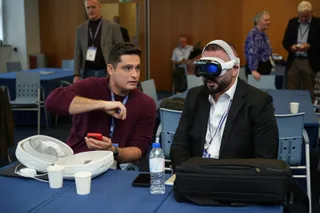Florida Tech First University to Own and Fly Electric Plane
Contact Our Team
For more information about how Halldale can add value to your marketing and promotional campaigns or to discuss event exhibitor and sponsorship opportunities, contact our team to find out more
The Americas -
holly.foster@halldale.com
Rest of World -
jeremy@halldale.com

Florida Tech First University has acquired an electric-powered Velis Electro, a light aircraft from Pipistrel, making it the first American university to own and fly an electric plane. As the focus on climate change and electric transportation increases, Florida Tech will allow for hands-on learning and research on this timely aspect of aviation.
The Velis Electro, a light aircraft from the Slovenian company Pipistrel, was introduced last year. The first electric-powered airplane certified in Europe, it has a maximum speed of 181 km/h (113 mph, 98 knots), zero emissions, an engine with a noise level of 60 decibels and a body made of composite materials. The plane costs $190,000.
The aircraft has not been flown in the United States until now. It is awaiting U.S. certification, so Florida Tech is flying it under the “experimental” category. Florida Tech alumnus and former associate dean Isaac Silver was the pilot for the inaugural flight. He flew for 22 minutes, using about a third of the aircraft’s battery capacity and creating an operating cost of only $1.03.
“While we can teach students flight test techniques using older aircraft, having them test an airplane with the latest technology prepares them for contemporary designs,” said Brian Kish, Flight Test Engineering program chair and aerospace associate professor.
The next step is in getting to know the plane to log significant flight time. The Federal Aviation Administration is in the process of awarding Florida Tech an $85,000 contract to provide data from the first 50 flight hours of the Velis Electro. Kish said the first thing the team will do in the early flights is to make sure they’re getting the performance that the plane’s manual says the vehicle should give. The team will test the different power settings during the plane’s cruising period.
“There’s different speeds, whether you use 20 kilowatts, up to 36 kilowatts for cruising, obviously the more power you should go a little faster,” Kish said. “So, we’re going to spot check all those cruise settings and see what airspeed we get and see how long the battery charge lasts.”
The electric plane made it to the university through a research relationship between the university, Georgia Tech and the FAA. As part of the work, university researchers were made aware of electric plane, with Pipistrel’s chief test pilot invited to a meeting to discuss the airplane. Pipistrel then offered the data on the plane, which led to Florida Tech inquiring about the plane to use for their own research. After internal discussions and a grant from the Buehler Perpetual Trust, the school put in the order last September. The plane arrived in Melbourne, Florida, in July.
“We expect to see some drawbacks and limitations, but more importantly we expect to also see potential opportunities,” Kish said. “As the first US customer, Florida Tech will report our research findings to Pipistrel and the FAA. This initial feedback is crucial in the engineering process to evolve the design as well as assist federal regulators on developing certification and training guidelines.”


